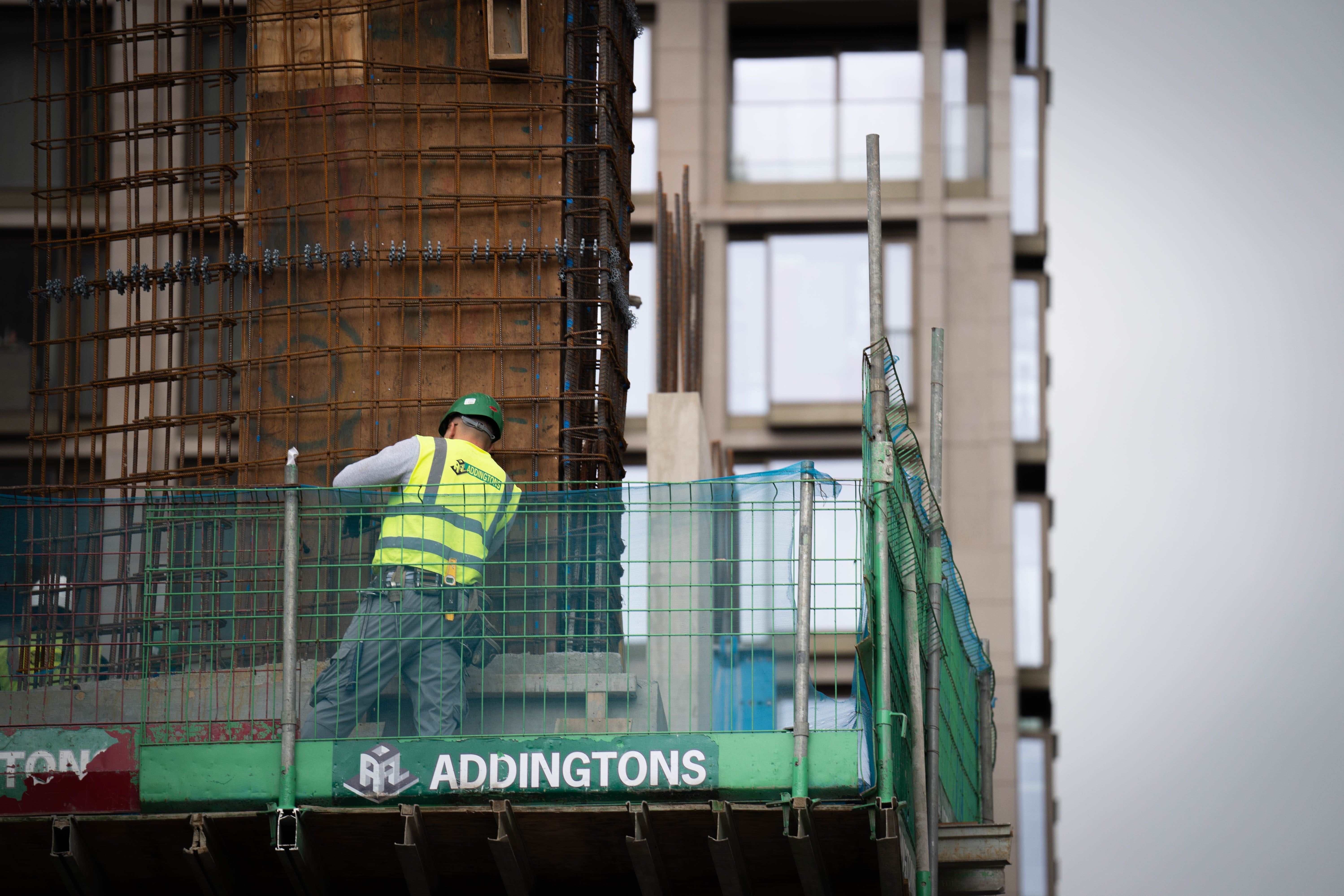Housebuilders facing one of toughest periods since 2009 crash, survey suggests
The PMI construction survey, which is closely followed by economists, undershot expectations in November.

Your support helps us to tell the story
From reproductive rights to climate change to Big Tech, The Independent is on the ground when the story is developing. Whether it's investigating the financials of Elon Musk's pro-Trump PAC or producing our latest documentary, 'The A Word', which shines a light on the American women fighting for reproductive rights, we know how important it is to parse out the facts from the messaging.
At such a critical moment in US history, we need reporters on the ground. Your donation allows us to keep sending journalists to speak to both sides of the story.
The Independent is trusted by Americans across the entire political spectrum. And unlike many other quality news outlets, we choose not to lock Americans out of our reporting and analysis with paywalls. We believe quality journalism should be available to everyone, paid for by those who can afford it.
Your support makes all the difference.The UK’s construction sector continued its decline last month and undershot expectations, according to a survey which is closely followed by economists.
The housebuilding sector was particularly badly hit, slowing at one of its fastest paces since the global financial crisis 14 years ago.
The S&P Global/CIPS construction purchasing managers’ index (PMI) scored 45.5 in November.
Residential construction activity has now decreased in each of the past 12 months and the latest reduction was still among the fastest seen since the global financial crisis in 2009
It was a small fall from the month before, when the index hit 45.6 points.
Economists had expected the figure would reach 46.7, according to a consensus supplied by Pantheon Macroeconomics.
It continues months of difficulties for the UK’s construction firms.
The PMI survey assigns a score to different sectors based on questions that companies answer. If that score is less than 50 it means the sector is likely to be shrinking. The further below 50 is scores, the faster it is shrinking.
Since September the construction sector has been shrinking fairly rapidly. September’s 45.0 score was the lowest since May 2020, which was the early days of the Covid-19 pandemic.
Although the PMI has recovered a little since then, November’s score is the second worst since 2020.
A slump in housebuilding has cast a long shadow over the UK construction sector and there were signs of weakness spreading to civil engineering and commercial work during November
There were some bright spots in the survey, however.
Companies revealed that their purchasing costs fell at the fastest rate since the summer of 2009, as raw material prices dropped.
But the housebuilding sector was really in the doldrums. Its PMI score was 39.2 in November, with companies saying the unfavourable market had led to a slowdown in activity.
Tim Moore, economics director at S&P Global Market Intelligence, said: “A slump in housebuilding has cast a long shadow over the UK construction sector and there were signs of weakness spreading to civil engineering and commercial work during November.
“Residential construction activity has now decreased in each of the past 12 months and the latest reduction was still among the fastest seen since the global financial crisis in 2009.
“Elevated mortgage costs and unfavourable market conditions were widely cited as leading to cutbacks on house building projects.”
There will be no quick fixes next year for the sector
Dr John Glen, chief economist at the Chartered Institute of Procurement & Supply (CIPS), said: “Despite this, the sector has finally emerged from a period of intense supply chain pressure and prices are now falling across the board, especially for timber and steel.
“Projects are no longer being delayed due to unexpectedly high material costs, with November seeing the sharpest reduction in purchasing prices since July 2009.
“There will be no quick fixes next year for the sector. Lower demand, elevated interest rates and the prospect of an election promise an uncertain start to 2024.
“This is a challenging moment for suppliers in the sector, who may have tough price negotiations ahead.”